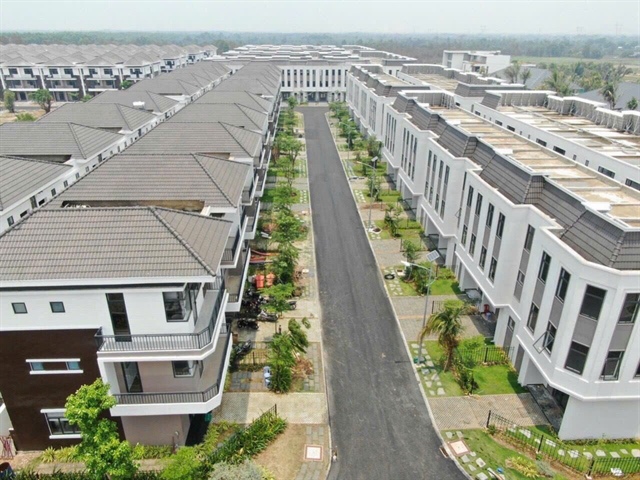Local property market to recover this year
Local property market to recover this year
Local property experts have forecast that the domestic real estate market will recover this year. 
Market demand and prices would likely to rise, according to economist Le Xuan Nghia.
Nghia said more finances would be made available by the banking system, thanks to stable development over the past three years.
Loans were an important financial source for the domestic real estate market, ensuring stable development of both the banking system and the real estate market, he said.
Nguyen Tran Nam, chairman of the Viet Nam Real Estate Association, was quoted by dantri.com.vn as saying that Viet Nam’s real estate market was in a good place to grow this year and beyond thanks to the strong development of the macro-economy.
As the 15th most populous country in the world and the third largest population in Southeast Asia, Viet Nam has the leading demand for housing in the region.
In addition, foreign direct investment (FDI) in real estate had increased sharply, Nam said.
Over the past decade, Viet Nam also focused on developing infrastructure with total investment accounting for about 10 per cent of GDP per year.
Nam said the property segment would post strong growth in the medium and long terms in tourism real estate, resorts and industrial real estate.
Nguyen Van Dinh, vice chairman of Viet Nam Real Estate Brokers Association (VARS), said that land was still the main draw for investors.
He said at present, housing supply was limited in Ha Noi and HCM City, with the main supply being middle and high-end housing.
For Ha Noi, housing supply would remain stable, with prices increasing 1-2 per cent.
In HCM City, supply would fall due to the limited number of new projects which could push prices up by 4-5 per cent.
Beside these advantages, the local market still faced many challenges, Nam said.
Administrative procedures to control licensing for new projects had been held up or even suspended for some projects.
Meanwhile, some real estate businesses had experienced difficulties accessing capital due to tightened lending requirements.
Another factor was the lack of information on the real estate market to ensure market transparency. In the domestic real estate market, lack of transparency had hindered investment from foreigners, he said.


























